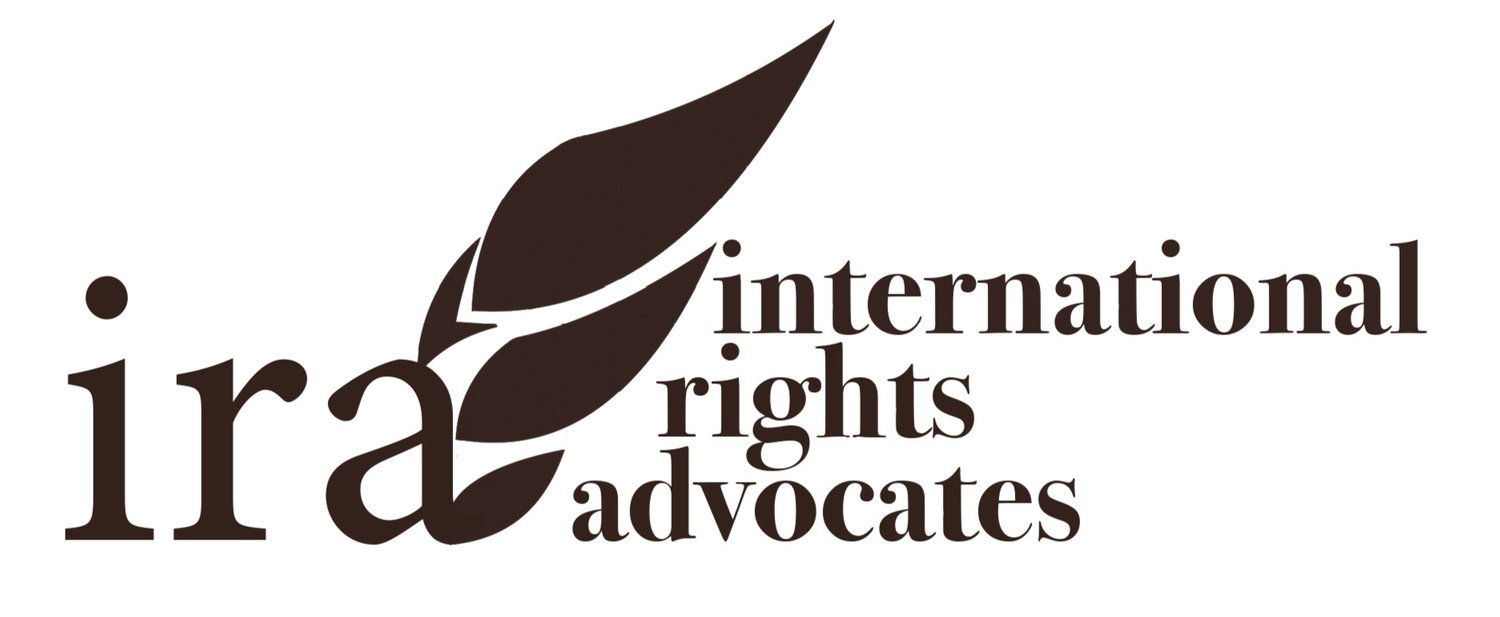Recent Alien Tort Statute Cases Show Kiobel Did Not Foreclose Human Rights Litigation in US Courts
By Merve Stolzman, American University Washington College of Law JD candidate, 2015
In a landmark decision, the Supreme Court in Kiobel recognized that there existed a presumption against extraterritorial application of ATS jurisdiction. Kiobel v. Royal Dutch Petroleum Co., 133 S. Ct. 1659, 1669, 185 L. Ed. 2d 671 (2013). The majority held the Nigerian plaintiffs’ ATS claims against Dutch, British and Nigerian corporations were barred by this presumption because “all of the relevant conduct took place outside the United States,” specifically in Nigeria. Id. The court noted the defendants’ only connection to the United States was their “mere corporate presence” in New York, and, in consequence, the plaintiffs’ claims did not “touch and concern the territory of the United States . . . with sufficient force to displace the presumption against extraterritorial application.” Id.
The majority of federal courts have since used this standard as a basis for their dismissal of ATS claims. For instance, the Eleventh Circuit adopted a narrow reading of Kiobel in Chiquita, and held that despite the fact the defendants were a U.S. corporation, all of the relevant conduct occurred outside the territory of the United States. Cardona v. Chiquita Brands Int'l, Inc., 760 F.3d 1185, 1191 (11th Cir. July 24, 2014). The court made a similar finding a few months later, holding that the alleged murders of three Colombians working at a coal mine of a U.S.-based corporation did not “touch and concern” U.S. territory with sufficient force to overcome the presumption against extraterritoriality. Baloco v. Drummond Co., Inc., 767 F.3d 1229, 1237 (11th Cir. Sept. 23, 2014). It further noted that the majority in Kiobel did not “place significant weight on the defendants’ nationality.” Id. at 1236.
Other circuits, however, have taken a more reasoned approach. A federal court in Massachusetts held a Ugandan plaintiff’s ATS claims were not barred by Kiobel’s presumption against extraterritorial application because the defendant was a U.S. citizen and resident who aided and abetted persecution in Uganda through conduct that predominantly occurred in the US. Sexual Minorities Uganda v. Lively, 960 F. Supp. 2d 304, 323-24 (D. Mass. 2013). Similarly, the Fourth Circuit in Al Shimari found plaintiffs’ ATS claims overcame Kiobel’s presumption because the conduct causing plaintiffs’ injuries in Iraq had a manifest connection to U.S. territory, and the defendant, a U.S. corporation, also engaged in relevant conduct within the United States. Al Shimari v. CACI Premier Tech., Inc., 13-1937, 2014 WL 2922840 at *10 (4th Cir. June 30, 2014). These two cases are among the slowly-expanding pool of ATS cases that have survived Kiobel. They exemplify that, while ATS litigation has faced significant obstacles since the Kiobel decision, it has by no means met its end.
In Sexual Minorities, Sexual Minorities of Uganda, a Ugandan organization advocating for the lesbian, gay, bisexual, transgender and intersex community, brought suit against Scott Lively, a U.S. citizen in the District Court for the District of Massachusetts. The plaintiff’s ATS claims were based on the defendant’s alleged aiding and abetting in the persecution of Ugandan members of sexual minority groups as a crime against humanity. The defendant moved to dismiss these claims, arguing, among other things, that Kiobel’s presumption against extraterritorial application barred plaintiff’s ATS claims. The court disagreed.
The court distinguished Kiobel on two facts. First, it noted the defendant was a U.S. citizen residing in Massachusetts, unlike the defendants in Kiobel who were U.K., Dutch and Nigerian corporations. Second, the court emphasized that unlike in Kiobel where all of the defendants’ relevant conduct occurred in Nigeria, here the defendant’s alleged tortious conduct, which had spanned over a decade, took place to a substantial degree within the U.S., with only infrequent visits to Uganda. He had established what the court described as “a kind of ‘Homophobia Central’” in Massachusetts, managing, advising, and assisting his “co-conspirators” in Uganda to undermine a court ruling granting LGBTI persons basic rights, and to propose legislation that would subject such individuals to the death penalty, among others. 960 F. Supp. 2d at 311, 323.
In relation to the defendant’s nationality, the court recognized the foreign policy concerns that arise when subjecting foreign nationals to the jurisdiction of domestic legislation for conduct that occurred overseas. However, it emphasized this was “not a case where a foreign national [was] being hailed into an unfamiliar court to defend himself” because the defendant was a U.S. citizen and resident. Id. at 322.
Regarding the defendant’s conduct, the court found “[t]he fact that the impact of Defendant’s conduct was felt in Uganda cannot deprive Plaintiff of a claim” because Kiobel, both in the majority opinion and the concurrences, made it clear the presumption against extraterritorial application had a limited reach, barring ATS claims only when all of the defendant’s conduct occurred outside the United States. Id. at 321-22. The court further noted that even at Kiobel’s narrowest construction, found in Justice Alito’s concurrence, ATS claims are not barred as long as the alleged domestic conduct was sufficient to violate an international norm. Upon examining the facts, the court concluded the plaintiff’s ATS claims survived even Alito’s narrow interpretation of the presumption against extraterritorial application because the defendant’s alleged assistance to the persecution campaign in Uganda occurred predominantly in the United States. The court specified the defendant resided and operated out of Massachusetts, and, despite the fact he visited Uganda twice over a ten-year period, the advice he gave to and the tactics he formalized for his co-conspirators in Uganda were communicated to those individuals from the United States.
The Fourth Circuit Court of Appeals reached a similar conclusion in Al Shimari. Four foreign nationals who had been detained at Abu Ghraib prison in Iraq sued a U.S.-based private corporation contracted by the US government to interrogate detainees at Abu Ghraib. The plaintiffs alleged the corporation’s employees had tortured and subjected the plaintiffs to cruel, inhuman and degrading punishment at Abu Ghraib. The Eastern District of Virginia dismissed the plaintiffs’ ATS claims, finding the acts that caused the alleged torture had “occurred exclusively in Iraq.” 2014 WL 2922840 at *5. The Court of Appeals disagreed and remanded the case back to the district court.
The Court of Appeals was addressing an even more complicated issue than the court in Sexual Minorities because the defendant’s employees had engaged in the alleged torture and cruel, inhuman and degrading treatment in Iraq. This meant that, unlike in Sexual Minorities, the alleged tortious conduct did not predominantly take place in the United States. However, the court still found plaintiffs’ ATS claims overcame the presumption against extraterritorial application. It emphasized Kiobel’s “touch and concern” inquiry assessed the degree to which the plaintiff’s claims, as opposed to the alleged tortious conduct, met that standard, “suggesting that courts must consider all of the facts that give rise to the ATS claims.” Id. at *8. This facts-based analysis, the court found, shows “courts should not assume that the presumption categorically bars cases that manifest a close connection to United States territory.” Id. at *9.
Examining the facts of the case, the court found the plaintiffs’ ATS claims had “substantial ties” to U.S. territory. It emphasized that U.S. citizens who were employees of a U.S. corporation engaged in the alleged acts of torture and cruel, inhuman and degrading punishment in a U.S. government-operated military facility. Moreover, those employees were hired in the U.S. to perform interrogation services pursuant to a contract that was executed between the U.S. corporation and the U.S. Department of Interior, and issued by a government office in Arizona. The corporation’s employees were required to pass a U.S. Department of Defense security clearance, and the corporation mailed its invoices to, and was consequently paid through, a government accounting office in Colorado.
The court also noted that, unlike Kiobel, this was not a case where all of the relevant conduct occurred outside the United States. It emphasized the plaintiffs’ claims included allegations not only that the employees directly participated in acts of torture, but also that the U.S. corporation’s managers within the U.S. were aware of such conduct, attempted to conceal it from the public, and at the very least implicitly encouraged such conduct. This, combined with the claims’ substantial U.S. ties, and the Congressional intent to grant aliens access to U.S. courts to hold U.S. citizens responsible for acts of torture committed overseas through the Torture Victims Protection Act (TVPA), and other legislation, created a strong enough basis for the plaintiffs’ claims to overcome the presumption against extraterritorial application.
While Kiobel has limited the jurisdictional reach of the ATS to claims that “touch and concern” U.S. territory, it has by no means blocked ATS litigation completely. The plaintiffs in both Sexual Minorities and Al Shimari were successful in bringing their ATS claims against U.S. defendants for conduct that either occurred in the U.S. or had a manifest connection to U.S. territory. Ultimately, these two cases illustrate that, despite the naysayers, ATS litigation may continue to be an effective tool to hold those committing human rights atrocities abroad accountable for their heinous actions.

